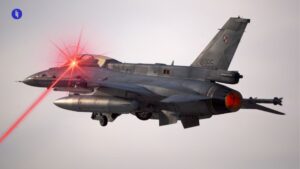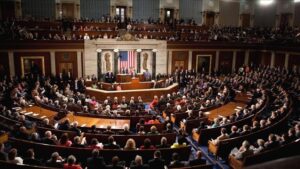Israel has just struck what it’s described as military sites near Damascus and across Syria’s south (near Israel). Why? The defence minister, Israel Katz, says it won’t let southern Syria become another “southern Lebanon” — ie, a stronghold for hostile forces like Hezbollah.
But beyond the missiles and statements, this all raises three big questions.
First, why did Israel strike now?
Stay on top of your world from inside your inbox.
Subscribe for free today and receive way much more insights.
Trusted by 134,000+ subscribers
No spam. No noise. Unsubscribe any time.
Two things just happened. To start, the US just got its newest spymaster, Tulsi Gabbard, a staunch advocate for prioritising the defeat of al-Qaeda in Syria and elsewhere (ie, more so than ousting dictators like Syria’s old Assad).
And that view increasingly overlaps with the view in Israel, where top envoy Gideon Saar is calling Syria’s new rulers an “Islamic jihad terrorist group” — that’s a reference to the al-Qaeda roots of the Hayat Tahrir al-Sham (HTS) faction now driving developments in Syria.
So while the Biden Administration and Europe started withdrawing bounties and lifting sanctions based on HTS assurances that it cut its al-Qaeda ties years ago, Israel remains wary, seeking to de-fang whoever’s left running Syrian turf near Israel. But why now?
Syria’s new caretaker government just wrapped up its national dialogue, a rare moment aimed at knitting together a fractured country. So Israel might’ve chosen that moment to strike, whether to a) make itself heard among Syria’s new rulers, b) hit while any armed factions were focused inwards, and/or c), prevent Syria stabilising or uniting too much, lest it become too strong.
Second, how is the rest of the world reacting?
For now, mostly with silence.While many view Syria’s transition away from Assad as a net positive, key regional and international powerbrokers are now busy either tackling the Russo-Ukraine war or figuring out phase two of the Israel-Hamas truce.
But that silence can also be revealing. While key Gulf states are emerging as Syria’s primary financial backer, and Turkey is muscling in as Syria’s key security partner, all are fundamentally competing for influence — and a powerful, united, and independent Syria might not always be the outcome they’re seeking.
Then third, would demilitarisation even be enough for Israel?
Netanyahu has called for a fully demilitarised southern Syria, but it’s unclear how exactly that would look — at its core, any stable and effective government involves having a local monopoly over the use of force.
That’s partly why Syria’s new rulers are attempting to unify the country’s armed groups under a Syrian flag. Without that, you don’t have a nation — you have warlordism.
So then, is there a way for Syria to hit this basic milestone while satisfying Netanyahu’s demands? Syria’s new leader (al-Sharaa) has offered assurances that he seeks no conflict and is willing to uphold the 1973 Israel-Syria separation of forces agreement, but Netanyahu isn’t exactly the trusting type.
The other question is whether Syria might instead lean on Turkey to pressure Israel to back off. But while Erdogan has long been a staunch critic and his FM has called Israel’s moves in Syria “expansionist”, Turkey itself has dozens of bases and outposts across northern Syria under the pretext of establishing its own buffer zone against the Kurds.
So even with the acquiescence of HTS, Turkey’s own bigger military footprint in Syria arguably undermines its authority to condemn Israel. Oh, and if you look carefully, Israel has already been building its own narrative to justify any military presence within Syria, increasingly positioning itself as a protector of the minority Druze community.
But of course from the perspective of Syria’s new rulers, any allegations of geopolitical hypocrisy fade against the hard reality of its neighbours now violating its sovereignty.
INTRIGUE’S TAKE
Pick any spot on a map, and the geopolitical game is often fundamentally the same: deterrence without destabilisation. But at this tentative stage of Syria’s post-Assad life, Israel has now seemingly calculated it’d rather not under-index on deterring its foes.
And yet, while post-Assad Syria clearly has extremist elements, the risk of pre-emptively hitting other parts of Syria is that you could end up merely vindicating — and playing into the narrative of — those very same extremists.
Also worth noting:
- Local reports suggest Syria’s main Kurdish leaders weren’t invited to the national dialogue in Damascus.









